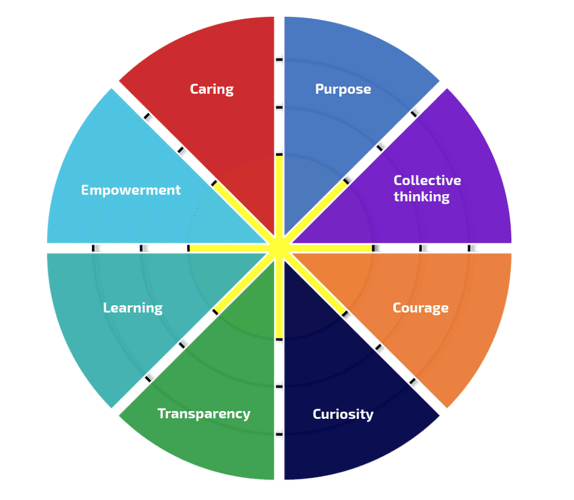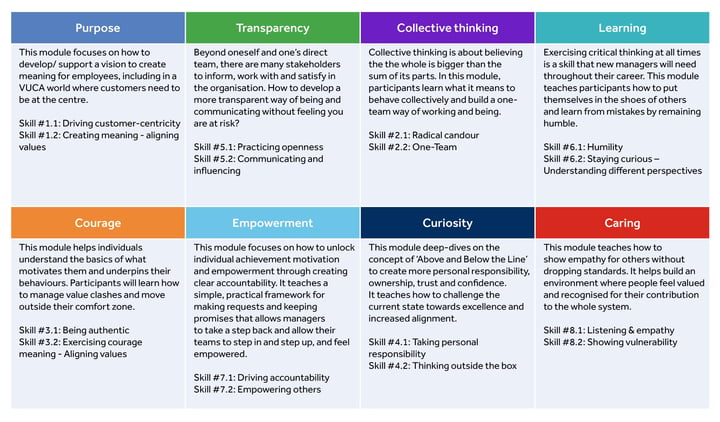Walking the Talk’s solution
To successfully transform in a digital world, businesses need to have certain cultural attributes that are not commonly present in large, complex organisations today. This is one of the findings from our latest research on cultures for digital and artificial intelligence. At Walking the Talk, we believe that organisations need to create a culture that supports their strategy, and in particular their digital transformation. Building culture takes time and those businesses that pay early attention to encouraging the mindsets and patterns of behaviour that support working in a digital environment will have improved chances of success.
What are the key cultural attributes required for successful digital transformation?
The diagram below represents the eight cultural attributes that are needed together for successful digital transformation. Those organisations who are successful at transforming digitally articulate a clear purpose expressed in terms of what value it adds to its customers and the role that employees play in delivering that value. They make sure employees are trained, have the skills, the resources and the time they need to deliver on their work in alignment with the purpose. They listen to both customers and employees. They share information transparently and recognise and reward teams and cross-functional results as well as individual results. Finally, they encourage their people to take calculated risks, to fail fast, and to learn together, making personal responsibility a requirement for all tin order o focus on solutions, not problems.

| Key attributes | Example behaviours | Key Mindsets |
| Purpose |
|
|
| Collective thinking |
|
|
| Courage |
|
|
| Problem-solving |
|
|
| Transparency |
|
|
| Learning |
|
|
| Empowerment |
|
|
| Caring |
|
|
How to accelerate (or re-start) your digital transformation?
The first step is to make sure you know where you stand in terms of each cultural attribute needed for digital transformation. Is the attribute strong and healthy or is it insufficiently present? Is it a blocker? What is the shared belief system that enhances or hinders the embedding of each attribute? What are the levers to pull to bring the attributes to life? The more detailed your understanding of the current situation, the better your plan. Based on the assessment conducted, the organisation can then identify the gaps and the focus areas for the next few months. For each gap, behaviours, systems and symbols will need to be realigned.
To develop and embed the required behaviours in the organisation, Walking the Talk have developed learning modules for the eight key attributes of digital cultures.

How strong is each of the eight cultural attributes in your organisation today?
For further insights view our selection of case studies, ebooks, reports and white papers or contact us to learn how we can transform your culture.

Head Office / Europe:
+31 (0) 20 240 2233
North America:
+1 (0) 212 417 0221
UK: +44 (0) 207 100 6999
Asia Pacific: +61 (2) 8310 5285
Brazil & Latin America: +55 (11) 932 500 683
(WhatsApp available)